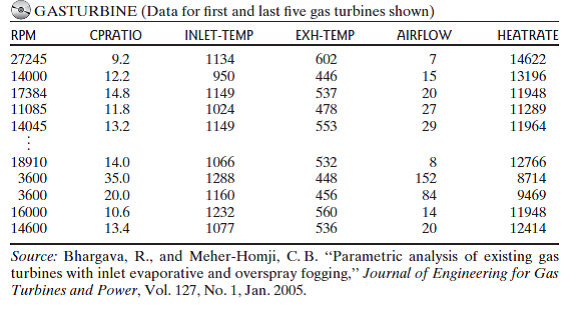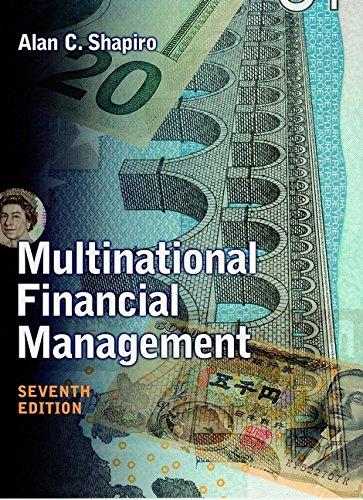Question
How would you do this on r script? Cooling method for gas turbines. Refer to the Journal ofEngineering for Gas Turbines and Power (January 2005)
How would you do this on r script?
Cooling method for gas turbines. Refer to the Journal ofEngineering for Gas Turbines and Power (January 2005) study of a high-pressure inlet fog-ging method for a gas turbine engine, Exercise 5.12 (p. 280). A number of independent variables were used to predict the heat rate (kilojoules per kilowatt per hour) for each in a sample of 67 gas turbines augmented with high-pressure inlet fogging. The independent variables available are engine type (traditional, advanced, or aeroderivative), number of shafts, cycle speed (revolutions perminute), cycle pressure ratio, inlet temperature (C), exhaust gas temperature (C), air mass flow rate (kilograms per second), and horsepower (Hp units). The data are saved in the GASTURBINE file. (The first and last five observations are listed in the table above.)
(a) Use stepwise regression (with stepwise selec-tion) to find the best predictors of heat rate.
(b) Use stepwise regression (with backward elimi-nation) to find the best predictors ofheat rate.
(c) Use all-possible-regressions-selection to find the best predictors of heat rate
(d) Compare the results, parts ac. Which inde-pendent variables consistently are selected as the best predictors?
(e) Explain how you would use the results, parts ac, to develop a model for heat rate.
How would you do this on r script?

Step by Step Solution
There are 3 Steps involved in it
Step: 1

Get Instant Access to Expert-Tailored Solutions
See step-by-step solutions with expert insights and AI powered tools for academic success
Step: 2

Step: 3

Ace Your Homework with AI
Get the answers you need in no time with our AI-driven, step-by-step assistance
Get Started


